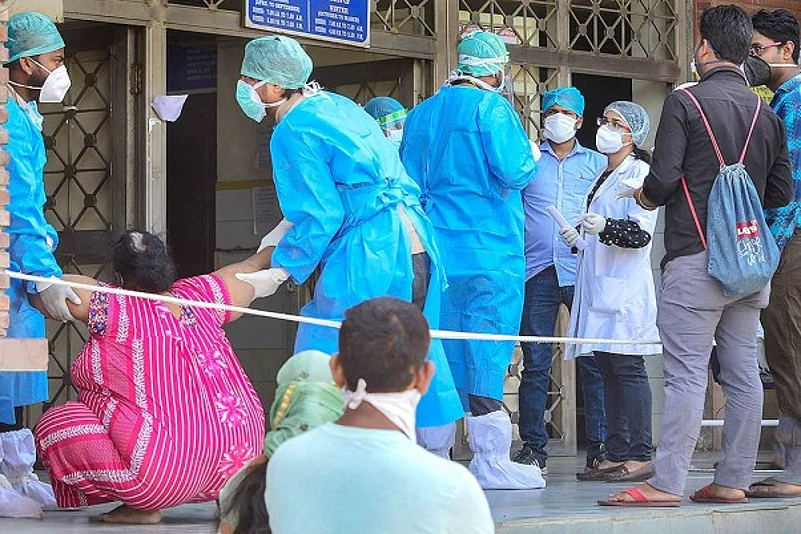As the national capital recorded 660 more confirmed Covid-19 cases on Friday, Dr S K Sarin, chief of Delhi government’s Covid-19 response panel, said that the infected cases in the national capital are likely peak by the end of July or mid-August.
Delhi's confirmed Covid-19 cases have reached 12,319 so far. As many as 2018 people have died.
Speaking to Outlook, Dr Sarin said that the coronavirus cases are on an ascent now. “Our estimate is that the by the end of July or mid-August, we will see the cases peaking. It may be followed by a plateau in a few days. Plateau means every day we will see the same numbers. Currently the cases stay in the range of 500. But the numbers can still increase,” said Dr Sarin.
Dr Sarin said that the committee’s estimate is that Delhi is already at Stage 2, where on an average 500 patients test Covid-19 positive everyday. According to panel’s assessment, third scenario is Stage 3, where the cases may reach 1,000 patients a day. “Our estimate is that Stage 3 could be the peak. Chance are that Delhi may witness a peak and then stabilize. You never know with the pandemic,” he said adding that the government is prepared to face any challenge. However, he said, people should show social responsibility by wearing masks and adhering to other protocols.
Dr Sarin said that cities, which have currently more infections, may witness a peak sooner -- even before July. Meanwhile, Tier 2 and Tier 3 may slowly progress.
Dr Sarin, who also heads the Institute of Liver and Biliary Sciences, said that permanent lockdown may not be helpful in the long run and the way forward is to redefine the zones. While the Delhi government has declared 77 containment zones to curb the spread of the virus, Dr Sarin feels that there should be restrictions in movement from red zones to green zones.
“The way forward is not a mere lockdown, but by redefining the zones. Many people in the red zones have developed an immunity (against the virus) already. The fact that the people in the green zones have never been exposed to the virus, they may be at a greater risk. When you ease the restrictions, the first rule should be that people shouldn’t move from red to green zone or vice versa,” he said.
He said conducting rapid antibody tests would be an ideal way to estimate immunity levels in people, especially in hotspots.
“We will have some herd immunity coming up. So we urgently need random rapid testing in several areas to see the impact. It should be done now. May be the antibody tests should be conducted every month for some time,” he said adding that more pool testing is required to ascertain the spread of the disease.
The national capital’s reproduction number ‘R’ for Covid-19 -- a parameter to measure the rate of infection -- stands at 1.7 to 2.5. “But it could be higher in certain pockets,” he said adding that more testing and labs are required. Delhi’s lower mortality rates can be attributed to the excellent quality of diagnosis and treatment, he said.
















